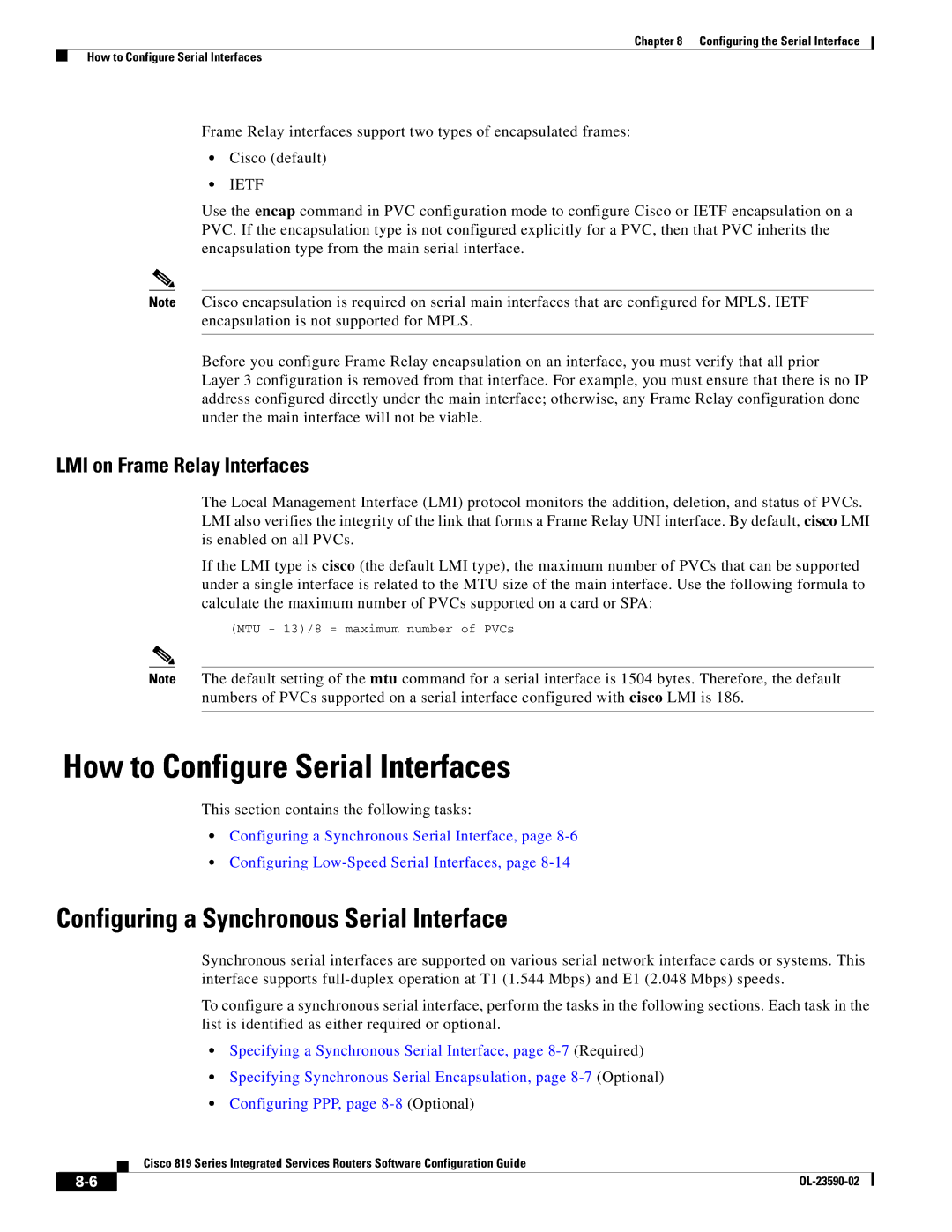
Chapter 8 Configuring the Serial Interface
How to Configure Serial Interfaces
Frame Relay interfaces support two types of encapsulated frames:
•Cisco (default)
•IETF
Use the encap command in PVC configuration mode to configure Cisco or IETF encapsulation on a PVC. If the encapsulation type is not configured explicitly for a PVC, then that PVC inherits the encapsulation type from the main serial interface.
Note Cisco encapsulation is required on serial main interfaces that are configured for MPLS. IETF encapsulation is not supported for MPLS.
Before you configure Frame Relay encapsulation on an interface, you must verify that all prior
Layer 3 configuration is removed from that interface. For example, you must ensure that there is no IP address configured directly under the main interface; otherwise, any Frame Relay configuration done under the main interface will not be viable.
LMI on Frame Relay Interfaces
The Local Management Interface (LMI) protocol monitors the addition, deletion, and status of PVCs. LMI also verifies the integrity of the link that forms a Frame Relay UNI interface. By default, cisco LMI is enabled on all PVCs.
If the LMI type is cisco (the default LMI type), the maximum number of PVCs that can be supported under a single interface is related to the MTU size of the main interface. Use the following formula to calculate the maximum number of PVCs supported on a card or SPA:
(MTU - 13)/8 = maximum number of PVCs
Note The default setting of the mtu command for a serial interface is 1504 bytes. Therefore, the default numbers of PVCs supported on a serial interface configured with cisco LMI is 186.
How to Configure Serial Interfaces
This section contains the following tasks:
•Configuring a Synchronous Serial Interface, page
•Configuring
Configuring a Synchronous Serial Interface
Synchronous serial interfaces are supported on various serial network interface cards or systems. This interface supports
To configure a synchronous serial interface, perform the tasks in the following sections. Each task in the list is identified as either required or optional.
•Specifying a Synchronous Serial Interface, page
•Specifying Synchronous Serial Encapsulation, page
•Configuring PPP, page
Cisco 819 Series Integrated Services Routers Software Configuration Guide
|
| |
|
